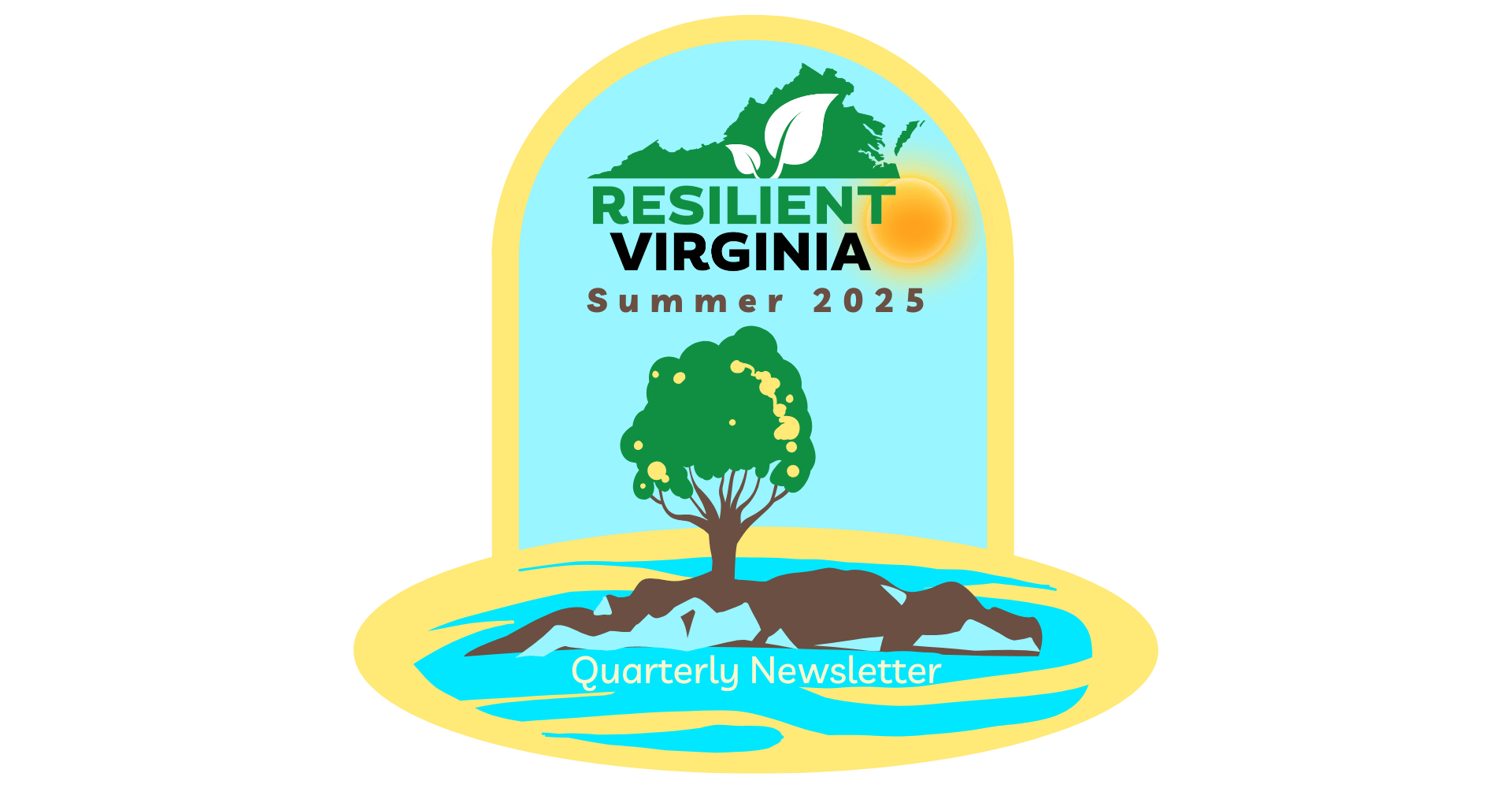
Resilient Virginia News: Summer 2025
2025 Resilient Virginia Conference Preview … Sponsor Highlight: JMU CASE … FEMA Preliminary Damage Assessment Guide … Federal Data + Screening Tools … more.
Accelerating resiliency planning in communities across the Commonwealth

2025 Resilient Virginia Conference Preview … Sponsor Highlight: JMU CASE … FEMA Preliminary Damage Assessment Guide … Federal Data + Screening Tools … more.
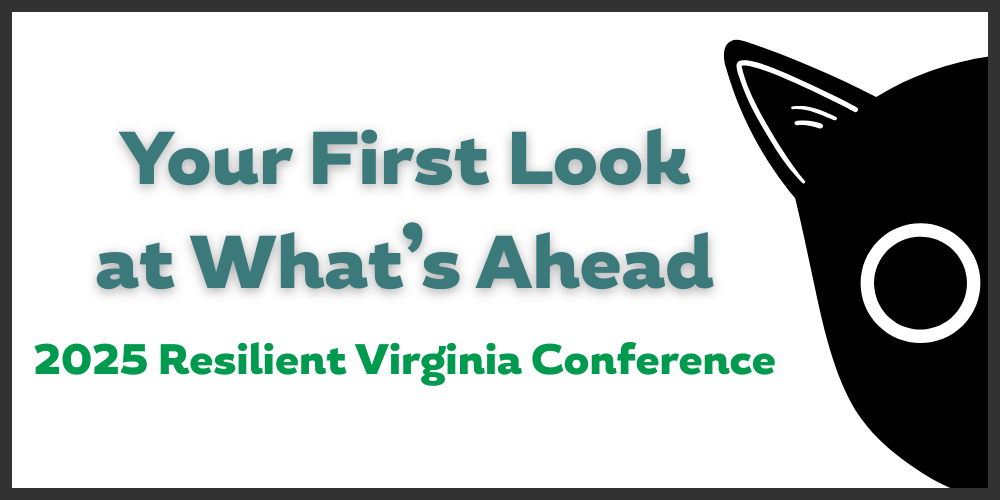
While we’re saving the full reveal for later, here’s a sneak peek at the powerful topics and exciting experiences taking shape on this year’s Resilient Virginia Conference agenda.
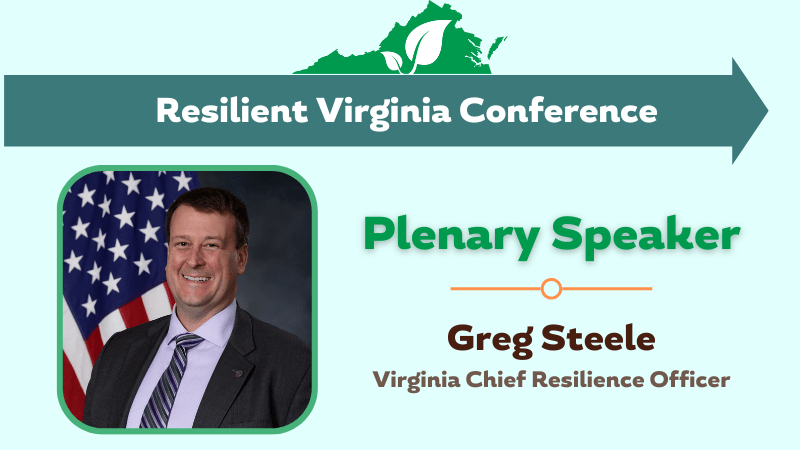
We’re pleased to announce that Greg Steele, Virginia’s newly appointed Chief Resilience Officer, will deliver the opening plenary address at the 2025 Resilient Virginia Conference.
The Geos Institute plans to expand the Climate Ready America initiative into Virginia. As part of this effort, they are surveying local governments across the state to asses interest in establishing a Climate Innovation Center.

5 ways to take part in Resilient Virginia’s 6th biennial resilience conference
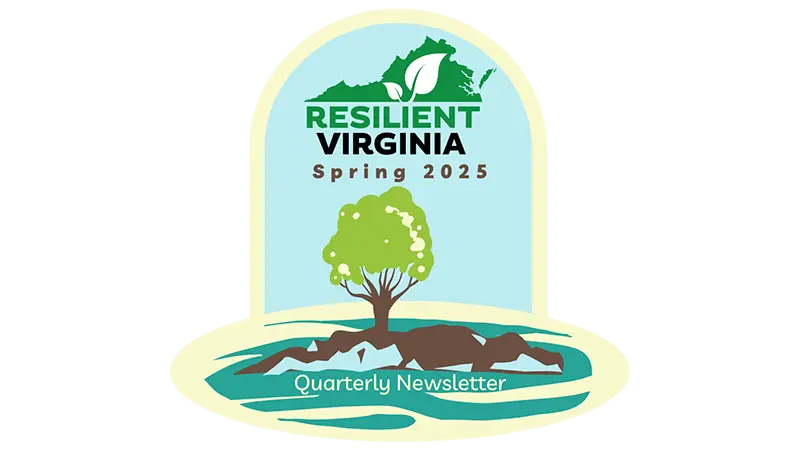
2025 Conference Set for July 23-24 … RVCA Launches Priority-Setting Workshops … Collaboration in Action … Resources and Funding … more.

On April 8, more than two dozen professionals, extension specialists, and regional stakeholders came together at the Harrisonburg Innovation Hub to kick off the Spring 2025 Resilient Virginia Collaborative Alliance (RVCA) Priority-Setting Workshop Series. This inaugural session marked a significant step forward in building a shared vision for climate resilience across Central and Southwest Virginia.
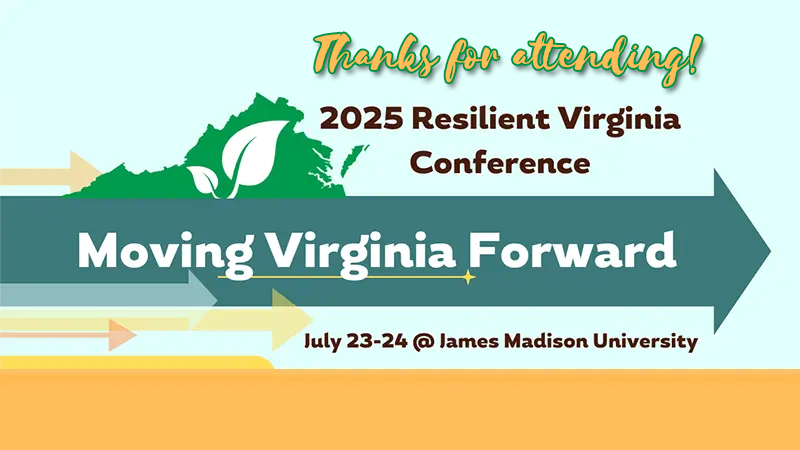
Browse Our Agenda for Resilient Virginia’s 2025 Conference: Tools, information, and networking opportunities you need to help build resiliency in your community.

View Our Speakers for Resilient Virginia’s 2025 Conference: Tools, information, and networking opportunities you need to help build resiliency in your community.

2025 Resilient Virginia Conference Preview … Sponsor Highlight: JMU CASE … FEMA Preliminary Damage Assessment Guide … Federal Data + Screening Tools … more.

While we’re saving the full reveal for later, here’s a sneak peek at the powerful topics and exciting experiences taking shape on this year’s Resilient Virginia Conference agenda.

We’re pleased to announce that Greg Steele, Virginia’s newly appointed Chief Resilience Officer, will deliver the opening plenary address at the 2025 Resilient Virginia Conference.
The Geos Institute plans to expand the Climate Ready America initiative into Virginia. As part of this effort, they are surveying local governments across the state to asses interest in establishing a Climate Innovation Center.

5 ways to take part in Resilient Virginia’s 6th biennial resilience conference

2025 Conference Set for July 23-24 … RVCA Launches Priority-Setting Workshops … Collaboration in Action … Resources and Funding … more.

On April 8, more than two dozen professionals, extension specialists, and regional stakeholders came together at the Harrisonburg Innovation Hub to kick off the Spring 2025 Resilient Virginia Collaborative Alliance (RVCA) Priority-Setting Workshop Series. This inaugural session marked a significant step forward in building a shared vision for climate resilience across Central and Southwest Virginia.

Browse Our Agenda for Resilient Virginia’s 2025 Conference: Tools, information, and networking opportunities you need to help build resiliency in your community.

View Our Speakers for Resilient Virginia’s 2025 Conference: Tools, information, and networking opportunities you need to help build resiliency in your community.
The Lincoln Institute of Land Policy’s Consortium for Scenario Planning is hosting its ninth annual conference February 4–6, 2026, at the University of Utah in Salt Lake City, Utah. Cohosted by the Lincoln Institute, the…
Resilient Virginia Collaborative Alliance Agriculture Working Group monthly meeting. Anyone is welcome to join the conversation!
RVCA Agriculture Working Group
Thursday, October 23 · 11:00am – 12:00pm
Time zone: America/New_York
…
Resilient Virginia’s 2026 Resiliency Academy is a 10-session webinar series designed to help communities understand change, reduce risk, and build long-term resilience using practical, systems-based, and equity-centered approaches.
Virginia is facing growing challenges from sea-level rise, recurrent flooding, extreme heat, and economic disruption—making coordinated resilience planning more essential than ever.
Beginning in 2026, Resilient Virginia will launch the Resilience Foundations Certificate Program, a first-of-its-kind professional development initiative that brings together leaders from government, business, academia, and community organizations to advance systems-level resilience across the Commonwealth.
The Power of Partnership … Spotlight On Webinar Series … Resilience Certificate Survey … Interactive StoryMaps Advance Climate Equity … RVCA Updates … Tackling Emerging Contaminants Water Technical Assistance … Closing America’s Wastewater Access Gap Initiative … Firewise Virginia Community Hazard Mitigation Grant Program … more.
VCU RISE has launched interactive StoryMaps to highlight environmental justice issues in Charles City County, Emporia, and Richmond. Learn how these equity-focused tools blend local data, maps, and community stories to support planning, resource access, and climate resilience.